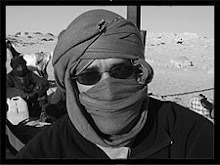Nha Trang, Vietnam. The path to divemaster has been fraught with perilous obstacles, most of them wet. To succeed I needed to master a variety of practical dive skills, exhibit expertise in theoretical dive knowledge, prepare myself to react to a host of rescue scenarios, build up my stamina for an endurance test, and, if it all goes well to that point, ready myself for the infamous snorkel test.
For lack of a better pun, my training has gone swimmingly. To kick things off I received training as an Emergency First Responder, allowing me to legally start poking bodies at the scene of an accident. I'm an Emergency First Responder, can I help you? Those ten magic words unlock a treasure trove of litigious defense mechanisms know as Good Samaritan Laws. So if I happen to snap a few ribs while over-enthusiastically performing CPR--and believe me, I am very enthusiastic about it--no problem, I'm covered. No matter, I was prepped for the challenging road ahead.
As the boat slid languidly from swell to trough, I anxiously awaited the next test. My eyes darted rapidly across the deck, muscles tense, adrenal glands primed. The customers were blissfully unaware of the pressure cooker around them. And then a shout...Rescue! Rescue! Game on. I grabbed my fins and a flotation device and dove in, pointing straight towards the flailing instructor. Arms thrashed wildly, water splashing all around me. As soon as I got within striking distance he lunged, climbed on top me, held me down as my breath ran low, tried to drown me. I broke free and swam to the surface, gasping for breath. Welcome to the Rescue Diver course.
For the next four days I was on constant alert, waiting for the next tragedy to strike. And strike it would, both on the surface and deep below. People ran out of air, collapsed unconscious at twenty meters, convulsed wildly, pulled off my mask, grappled my tank, yanked the regulator out of my mouth, and generally exhibited a level of gleeful malevolence whenever I or my training partners were nearby. For the coup de grâce, without warning, not one, but two divers simultaneously ran out of air at depth. While one grabbed my backup regs, I had to pass my air source back and forth to the other diver while the three of us ascended to the surface. It wouldn't have been so bad if one of them hadn't lost consciousness and stopped breathing at the surface, requiring me to drag him back to the boat while simultaneously stripping off his scuba gear (making it easier to perform CPR once back on the boat). Throw it at me, I'm ready.
Over the course of the next few weeks I rounded out my training with a variety of specialty courses. Navigation required me to complete an underwater scavenger hunt, finding compass bearings and collecting words at each stop. Deep diving taught me how to sink to new depths, both literally and figuratively. For my Nitrox specification, we went deep to feel the effects of narcosis. For those unfamiliar, narcosis is toxification of the body tissues with nitrogen. It can cause the sufferer to feel a wee bit drunk--and make them increasingly likely to pull out their regulator and try to kiss one of the fish.
Next up, exams. Time to crack the books. Physics, physiology, equipment, oh my. I think I'll phone a friend.
April 26, 2010
Subscribe to:
Post Comments (Atom)










No comments:
Post a Comment